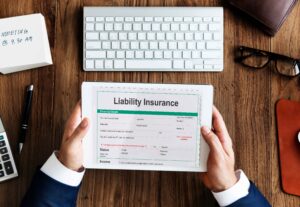In the realm of commercial transportation, securing adequate auto insurance for commercial vehicles is paramount. Whether you’re managing a fleet of delivery trucks, construction vehicles, or service vans, understanding the intricacies of commercial vehicle insurance is essential for safeguarding your assets and ensuring the continuity of your business. This comprehensive guide delves into the core aspects of auto insurance for commercial vehicles, providing valuable insights to help you make informed decisions.
What is Commercial Vehicle Insurance?
Commercial vehicle insurance is a specialized type of auto insurance designed to cover vehicles used for business purposes. Unlike personal auto insurance, commercial vehicle insurance provides coverage for a range of business-related risks, including liability, physical damage, and medical expenses resulting from accidents involving company vehicles.
Why is Auto Insurance for Commercial Vehicles Important?
- Legal Requirement: Most states and countries mandate that commercial vehicles be insured. Operating without adequate insurance can result in hefty fines, legal penalties, and even business shutdowns.
- Financial Protection: Accidents involving commercial vehicles can lead to significant financial losses. Insurance helps cover repair costs, medical expenses, and legal fees, protecting your business from financial ruin.
- Employee Safety: Ensuring that your vehicles are insured demonstrates a commitment to the safety and well-being of your employees, who rely on these vehicles for their daily tasks.
Types of Coverage in Commercial Vehicle Insurance
- Liability Coverage: This is the most critical aspect of commercial vehicle insurance. It covers bodily injury and property damage that your vehicle may cause to others in an accident. It includes:
- Bodily Injury Liability: Covers medical expenses, lost wages, and legal fees if your driver is at fault in an accident that injures another person.
- Property Damage Liability: Covers the cost of repairs or replacement for the property damaged by your vehicle.
- Physical Damage Coverage: Protects your vehicles from damage caused by collisions, theft, vandalism, and other perils. It includes:
- Collision Coverage: Pays for damages to your vehicle resulting from a collision with another vehicle or object.
- Comprehensive Coverage: Covers damages from non-collision-related incidents such as theft, fire, and natural disasters.
- Medical Payments Coverage: Covers medical expenses for you and your passengers in case of an accident, regardless of fault.
- Uninsured/Underinsured Motorist Coverage: Protects you if your commercial vehicle is involved in an accident with a driver who has insufficient or no insurance.
- Cargo Coverage: If your business involves transporting goods, this coverage protects against loss or damage to the cargo you’re carrying.
- Hired and Non-Owned Auto Insurance: Provides liability coverage for vehicles you rent or borrow for business purposes, and for employees’ personal vehicles used for business tasks.

Factors Affecting the Cost of Commercial Vehicle Insurance
Several factors affecting the cost of commercial vehicle insurance include driver experience, vehicle type, usage, location, and claim history, influencing premium rates significantly.
- Type of Vehicle: Larger and more specialized vehicles generally cost more to insure due to their higher repair and replacement costs.
- Use of Vehicle: The way you use your vehicle (e.g., long-haul trucking vs. local deliveries) impacts the insurance premium. Vehicles used for high-risk tasks or long distances typically incur higher premiums.
- Driver History: The driving records of your employees play a significant role. Drivers with clean records help keep premiums lower, while those with accidents or violations can increase costs.
- Location: Insurance costs can vary based on where your vehicles operate. High-traffic areas with higher accident rates generally result in higher premiums.
- Coverage Limits: Higher coverage limits provide more protection but also come with higher premiums. It’s crucial to balance adequate coverage with affordability.
- Deductibles: Choosing higher deductibles can lower your premium, but it also means you’ll pay more out-of-pocket in the event of a claim.
Tips for Choosing the Right Commercial Vehicle Insurance
Consider these tips for choosing the right commercial vehicle insurance: evaluate coverage options, compare quotes, assess insurer reputation, and review policy terms to ensure optimal protection.
- Assess Your Needs: Evaluate the specific risks associated with your business and vehicles. Consider factors like the type of cargo, driving distances, and operating environments.
- Compare Quotes: Obtain quotes from multiple insurance providers to find the best coverage at the most competitive price. Make sure to compare similar coverage levels.
- Check the Insurer’s Reputation: Research the financial stability and customer service reputation of the insurance companies you’re considering. Reliable insurers will ensure smoother claims processing.
- Customize Your Policy: Work with your insurer to tailor a policy that fits your business needs. This might include adding or removing specific coverages based on your risk profile.
- Implement Safety Programs: Many insurers offer discounts for businesses that implement driver safety programs, regular vehicle maintenance, and other risk management practices.
- Review and Update Regularly: Your business needs may change over time. Regularly review your policy to ensure it still meets your requirements and adjust coverage as necessary.

How Does Commercial Vehicle Insurance Work?
Commercial vehicle insurance works by providing coverage specifically designed for vehicles used in business operations. It protects against a variety of risks, including accidents, theft, and damage. When a commercial vehicle is involved in an incident, the insurance policy covers the associated costs, such as repairs, medical expenses, and legal fees. This type of insurance includes various coverages like liability, which pays for damages to others if your vehicle is at fault; physical damage, which covers your vehicle; and additional options like cargo coverage for transported goods. Premiums are determined by factors such as the type of vehicle, its use, driver history, and location. In the event of a claim, the policyholder files a report with the insurer, which then assesses the claim and provides the necessary compensation based on the policy terms. This financial protection ensures that businesses can continue operations without facing crippling financial losses. For more detailed information, you can refer to resources like the Insurance Information Institute.
Read this blog carefully, How Does Car Accident Settlement Work: Car Accident Legal Advice Consultation
Conclusion
Auto insurance for commercial vehicles is not just a regulatory requirement; it’s a crucial investment in the longevity and stability of your business. By understanding the types of coverage available, factors affecting costs, and tips for selecting the right policy, you can protect your assets, ensure employee safety, and maintain financial stability visit our website. Take the time to assess your needs, compare options, and choose a policy that provides comprehensive protection for your commercial vehicles.
FAQs on Auto Insurance for Commercial Vehicles
1. What is commercial vehicle insurance and why is it important? Commercial vehicle insurance covers vehicles used for business purposes. It’s important because it provides financial protection, ensures legal compliance, and demonstrates a commitment to employee safety.
2. What types of coverage are included in commercial vehicle insurance? Key coverages include liability (bodily injury and property damage), physical damage (collision and comprehensive), medical payments, uninsured/underinsured motorist, cargo coverage, and hired/non-owned auto insurance.
3. What factors affect the cost of commercial vehicle insurance? Factors include the type and use of the vehicle, driver history, location, coverage limits, and deductibles. Larger vehicles, high-risk uses, poor driving records, and high-traffic areas generally lead to higher premiums.
4. How can I choose the right commercial vehicle insurance for my business? Assess your specific needs, compare quotes from multiple providers, check insurers’ reputations, customize your policy, implement safety programs, and regularly review and update your coverage.
5. Are there ways to reduce my commercial vehicle insurance premiums? Yes, you can reduce premiums by choosing higher deductibles, implementing driver safety programs, maintaining regular vehicle maintenance, and taking advantage of discounts offered by insurers for risk management practices.





